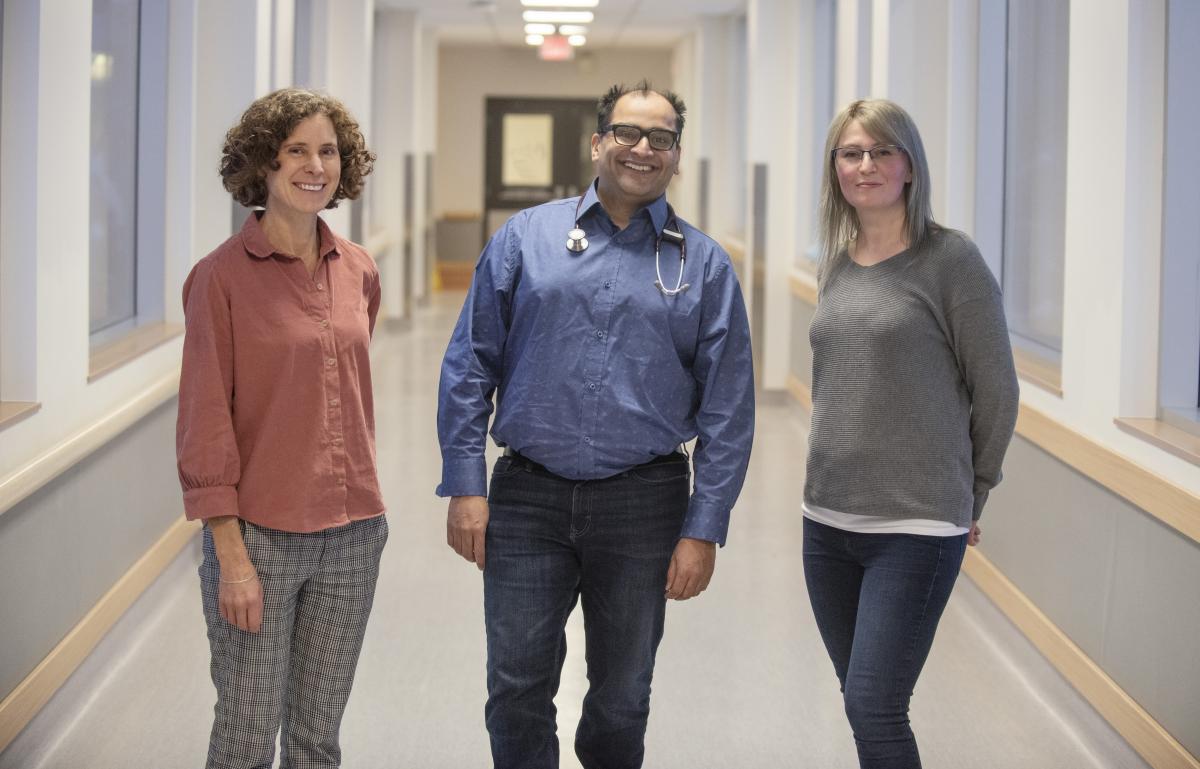Surgical patients at the University Hospital of Northern BC (UHNBC) are experiencing improved health even before their elective procedures because of proactive care from a team of doctors and health providers co-led by a urologist and a family physician.
Patients are recovering faster, care teams are more efficient, and pressure is eased on BC’s health care system by taking a prehabilitation approach through the Surgical Patient Optimization Collaborative (SPOC), which is funded by the Specialist Services Committee, Shared Care, and General Practice Committee; these three the Joint Collaborative Committees (JCCs) represent a partnership of Doctors of BC and BC Government.

“Before SPOC, I had a number of patients whose surgeries were cancelled on the day of surgery because of other underlying health issues that were identified too late,” says Dr Alym Abdulla, urologist and specialist physician lead of the surgical support team at UHNBC, one of 14 BC hospitals participating in SPOC.
This meant the surgery had to be rebooked–taxing the health care system, misspending the care team’s time, and prolonging the period patients felt unwell and used medical resources until they were ready for surgery again.
Together, Dr Abdulla and family physician Dr Rachel McGhee lead a surgical support team who prepare patients for elective surgery by eliminating or reducing barriers such as poor management of chronic conditions, mental health issues, and gaps in social supports. The team includes seven physicians, a nurse navigator, a physiotherapist, a social worker, and a community services manager.
Since the start of SPOC at UHNBC in 2019, the team has screened nearly 500 surgical patients and optimized preoperative care for 396 patients who were identified as needing intervention(s) prior to surgery.
Dr McGhee, member of the Prince George Division of Family Practice, notes that patients who have finite goals such as quitting smoking, improving nutrition or increasing daily exercise before surgery will often carry these good habits beyond their surgical recovery.
To establish and implement preoperative optimization at UHNBC, the site’s surgical support team met every two weeks to brainstorm ideas, identify realistic ways to make the program work, and consult with key health partners—including the local division to help define the family doctor’s role in the process.
As consultations also revealed the importance and value of a nurse navigator to the process, the team welcomed Nicole Dron. Patients who have been assessed as needing prehabilitation by a physician connect with Nicole. Nicole not only directs patients to prehabilitation resources for the domains identified by the doctor, but she also maintains regular contact with the patient throughout the process.
“This regular connection [to Nicole] helped to keep my anxiety down because I was able to have questions quickly answered and not running around in my head for too long,” shares Sharlene Logan, a hip replacement patient living in Quesnel. “I felt like I was part of a team.” Read more about Sharlene’s experience.
Dr Abdulla says he mentions the program to his patients to help educate and empower them to take charge of their own health, as well as to reaffirm how the team is integrated and collectively committed to their well-being.
Despite the COVID-19 pandemic slowing down the preoperative optimization efforts, the team continues to plan to expand their site team with an orthopedic surgeon, and for key elements needed for its long-term success including effective and supportive leadership, engagement from critical care areas, and belief in having the ability and resources.
“Collaboration was key to our success,” expressed Dr Abdulla. “We all put in the time, often after hours, and in the end yielded a successful and meaningful outcome. We would like to be sure it continues.”



